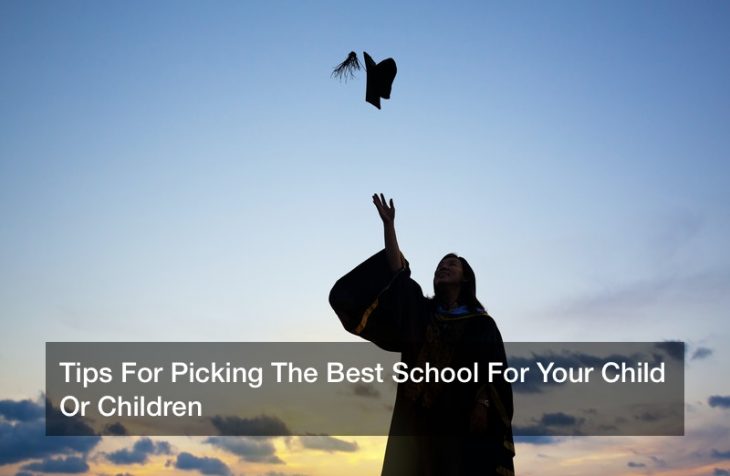Tips For Picking The Best School For Your Child Or Children

As parents, we want to send our kids to the best schools, there is certainly no doubt about this fact. After all, letting them get their education at the best schools available to them gets them all of the possible advantages for later on in life. At these best schools, they will be set up for access both for their college years as well as for the adult world that follows after. But how exactly can you ensure that they go to these best schools in the first place? After all, many public schools that parents are in district for are certainly less than stellar, to say the very least.
For many people, this will mean a private school education. After all, private schooling has grown more popular than ever before all throughout the United States and many of the best schools are now one and the same with the best private schools. Up to one quarter (around 25%, to be a bit more specific) of all schools offered in this country and open to enrollment are private schools, serving more than five and a half million children on a yearly basis. And this number of students is ever on the rise, certainly climbing higher and faster than ever before.
But why, exactly, are the private schools in this country the best schools? For one thing, they are able to keep levels of student engagement quite high indeed. After all, up to one fifth of all public school teachers say that student engagement is, on the whole, a problem that they are facing and one that is noteworthy, for that matter. In a stark contrast to this, less than 5% of all private school teachers have noted the same. This hows quite clearly that private schools, often thought to be the best schools in the country, are able to connect to students in a way that the majority of public school institutions just are not able to do in a real and meaningful – and consistent – manner.
And the same can be said for the engagement of the parents of these students. In far too many public schools, this engagement is very much lacking, which is certainly something that can hurt the students themselves in the long run. Yet again, more than one fifth of all public school teachers view overall levels of parent engagement as quite hugely problematic. And again, the response from the surveyed private school teachers very much contrasts this, with results showing that again, less than 5% of all private school teachers found this to be a problematic matter in the slightest.
By the time your child gets to be of an age to attend high school, comparing public and private schools really shows what the best schools are. After all, students who graduate from private high schools are much more likely to have success in college, something that can be seen even just from looking at their average SAT scores, one of the tests taken for college placement on a country wide scale. For public schools, the average SAT score was only just about 1000 points. For the average private school, however, it was well above 1200. Such a jump in score could seriously help many students all throughout the country, there is certainly no doubt about this in the slightest. And the data doesn’t lie, showing that up to 95% of all private high school graduates with further their education, while less than half of all public high school graduates will make that same choice.
Why is this the case? In many instances, it comes down to the resources that are available to the students in question. At public schools, the resources tend to be much more scarce. As a matter of fact, the average guidance counselor will likely only be able to dedicate about one fifth of their time to matters surrounding college and getting a college education. In direct comparison to this, the typical high school guidance counselor working in a private high school will likely be able to spend more than half their time on such subjects.
